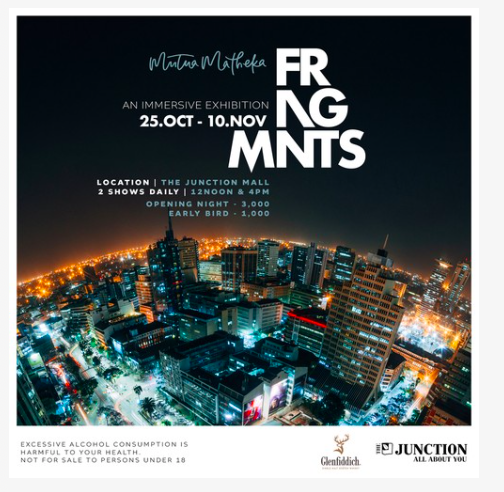The Abasuba, or Subanese as modern Subas prefer to be called, moved into Rusinga and Mfangano Islands after a bloody dynastic war for the Buganda throne.
In 1780, the 25th Kabaka of the Buganda, Kyabaggu, was killed by a valet. One of his sons, Jjunju, succeeded him as the 26th Kabaka. His reign lasted 17 years, and ended in a bloody war that left him dead and his body mutilated.
It also marked the events that led to the exiling of the people who became the Abasuba who occupy Rusinga Island today, and the neighboring Mfangano Island and mainland areas.
Two brothers, Jjunju and Semakooikoro, fought for the throne. He had exiled his brother, who recruited armies from the Abakantu.
After one of them, Kiboye, killed Junju during a fierce battle and cut off his genitals, Semakooikoro became the Kabaka of the Baganda.
He, however, was furious with how his brother had died, and he ordered the Abakantu be killed. A drummer boy, Mwembe, was in court at the time and sneaked out to warn the Abakunta of their impending massacre. He stupidly left his drum in their village, and had to lie later that it was stolen.
.@RusingaFestival @EbosoAnne @Canduh_ @Owaahh @potentash @AbigailArunga @theMagunga @MagicalKenya @CurateKE #RusingaFest2016 pic.twitter.com/7h2cLCNcHt
Kasi Mumba (@RizzBee) December 23, 2016
So Kiboye and the rest of the troops fled on three boats, crossing Lake Victoria.
Kiboye settled in what is now Wigasi Hill on the mainland. His brother settled on Mfangano Island and using diplomacy to win over his neighbors. Another group moved on to Rusinga Island, which became the site of several dominance wars.
The islands were perfect for security, mainly because the mainland areas across the lake were occupied by the Luo, and beyond them Kisii and the powerful Maasai.
As the population of the Abakantu grew on the two islands, they splintered into two small kingdoms, the Wasaki and the Waware. The splinter became a war of dominance, with each side recruiting the enemies of the other for one final showdown.
It ended up being a war of attrition for half a century, with each side successfully exiling the other to the mainland for a time.
these #RusingaFest2016 dancers really enoughed me. Wait for the chap in yellow. pic.twitter.com/JfYWAgoX1y
Magunga (@theMagunga) December 24, 2016
The Waware ruled the islands, with the Wasaki living on the mainland and launching small scale attacks on their enemies. The Wasaki finally won back power, ruling from Rusinga Island.
By most accounts the Wasaki were badass, but their’s would be a short reign, and the last of the power switches between the different descendants of the Abakantu, now the Abasuba.
The Wasaki Empire, under a king called Wadeya, imposed a taxation system that placed the heaviest responsibility on their enemies, and those who tried to revolt. A good example of this is how they dealt with the Wakula of Mfangano Islands, who had all but triggered a war. The last straw was a bow-and-arrow duel between one of their sons and a son of a rival group that was deeply loyal to the Wasaki.
The Waware, meanwhile, were bonding with the Luo on the mainland and planning a new conquest. The military plan was to first win back Mfangano, isolating Rusinga Island. To do so though, they had to sacrifice a human being.
One of their chiefs, Wakiaga, offered himself as the human sacrifice. Power went to the remaining king, Mamra, who now had to lead the sack of Mfangano and Rusinga Islands.
@RusingaIsland fishermen going for their daily catch @RusingaFestival #RusingaFest2016 pic.twitter.com/AesYN0Ssad
?Magunga (@theMagunga) December 24, 2016
They won back Mfangano and planned the invasion of Rusinga, which began in 1850.
The Wasaki chief, Wadeya, died a few days before the Waware invaded Rusinga from two fronts, initially distracting their enemies with a small, ill-equipped invasion force. They sacked Rusinga Island, driving out the Wasaki and, in the tradition of the time, starting their own fire.
The new Waware empire was short lived because in another five decades British invasion would give power to a completely new group of leaders among them.
Enjoying Suba cultural dance #RusingaFest2016 #magicalkenya pic.twitter.com/2YaWZjDK5y
Kenya Tourism Board (@MagicalKenya) December 23, 2016
Obar, Mamra’s successor, ruled from Rusinga. He approached the British through diplomatic channels and became the first chief of the islands under the new colonial rule.
Under him, however, the Abasuba culture declined. He dismissed his council of elders in favor of younger men who could speak Dholuo. That became a key element of the new Subanese reality; that the only way for the descendants of the Abakantu to fit into this new world was to speak the language of their neighbors, and Kiswahili.



All images, unless otherwise stated, by Anthony Ochieng’.
To read about Rusinga Festival 2015 [Link]
Owaahh, 2016
One story is good,
till Another is told.
Abasuba Buganda Rusinga Festival Rusinga Island
Last modified: February 12, 2020































